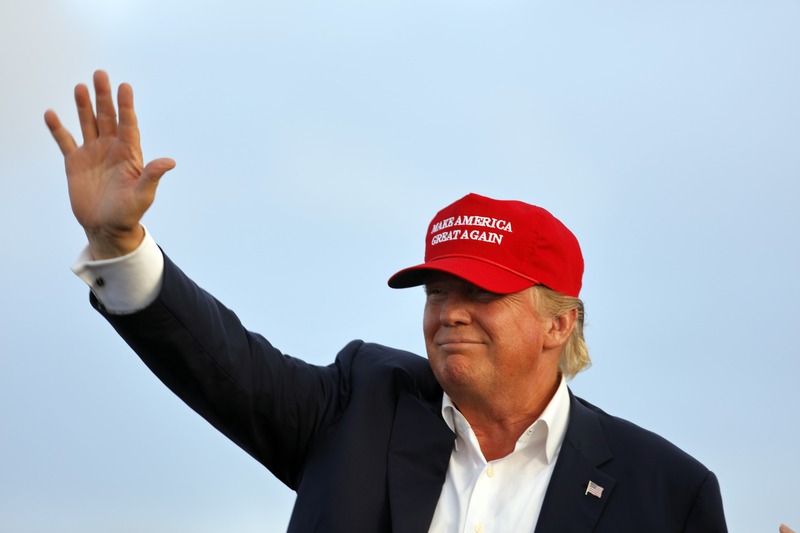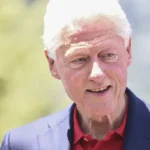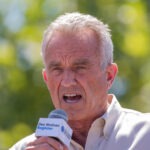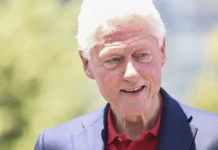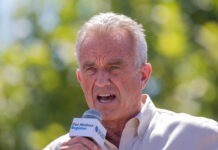On September 7, 2024 former President Donald Trump held a rally at the Central Wisconsin Airport in Mosinee, Wisconsin. The event drew a crowd of about 15,000 supporters. Trump arrived in his private jet, known as “Trump Force One,” and used the opportunity to address his concerns about alleged threats to free speech in the United States and to criticize the current administration’s policies.
As the Republican presidential nominee, Trump highlighted the significance of safeguarding free speech, declaring, “They’ve taken away your free speech, and the fake news threat is a threat to this country.” He pledged to take measures to address this issue if re-elected, such as signing an executive order “banning any federal employee from colluding to limit speech” and terminating “any federal bureaucrat who engaged in domestic censorship under the Harris regime.”
This rally marked Trump’s fourth visit to Wisconsin in the current election cycle and his first visit to the predominantly rural and deeply conservative region of the state. Wisconsin is a critical battleground state that both major parties have focused on, as four of the last six presidential elections were decided by less than one percentage point.
Trump’s remarks on free speech and his critique of the media come following a stern op-ed by A.G. Sulzberger, the publisher of the New York Times. Sulzberger’s piece, published in the Washington Post two days before the rally, warned that “Trump stands out for his aggressive and sustained efforts to undermine the free press.” He also advised Americans to brace themselves for Trump’s possible use of an anti-media “playbook” if he triumphs in November.
Trump defended his relationship with the media at the rally, stating, “When you’re a politician…, and you happen to be a Republican or somewhat conservative, they write just the opposite of what the facts are, and if you are driving a cab, if you’re an accountant, if you are a lawyer, if you are something other than that, you don’t know the details.” He continued, “When we know the facts, and the story gets written the exact opposite of what it is, you start to lose faith in the press.”
Trump also addressed other significant campaign issues at the rally, such as immigration and border security. He criticized the Harris administration for their perceived lax border policies, connecting them to increased crime rates and a strain on taxpayer resources across the country.
Trump’s visit to Wisconsin highlights the state’s key role in the forthcoming election. Both Trump and his Democratic opponent, Vice President Kamala Harris, have visited the state frequently this year. Polls conducted since President Biden’s decision not to run for re-election in July show Trump and Harris virtually tied among Wisconsin voters.
Wisconsin’s significance in the electoral landscape is substantial. Democrats view it as a crucial “blue wall” state. In the 2020 election, Biden won Wisconsin by a margin of just under 21,000 votes, while Trump took the state by nearly 23,000 votes in 2016.
Trump’s focus on free speech and media relations at the Mosinee rally reflects the ongoing conflict between his campaign and several news organizations. Throughout his previous term and current campaign, Trump has frequently had disagreements with journalists and media organizations, often branding unfavorable coverage as “fake news.”
The rally in Mosinee featured Trump making a series of bold promises, including ending the Russia-Ukraine war before his potential inauguration and eliminating the Department of Education. These statements align with his campaign strategy of portraying himself as a transformative figure capable of effecting significant changes in government policy and international relations.
As the election campaign heats up, Trump’s discourse on free speech and media relations is expected to continue being a central theme. His pledges to protect free speech and reform media interactions, if elected, contrast sharply with warnings from individuals like Sulzberger about potential threats to press freedom under a second Trump administration.
The Mosinee rally, with its enthusiastic crowd and Trump’s robust messaging, sets the stage for what is anticipated to be a closely monitored and fiercely fought election in Wisconsin and throughout the country. As both campaigns increase their efforts in key battleground states, the topics of free speech, media relations, and government transparency are likely to significantly influence voter perceptions and ultimately, the result of the 2024 presidential election.

